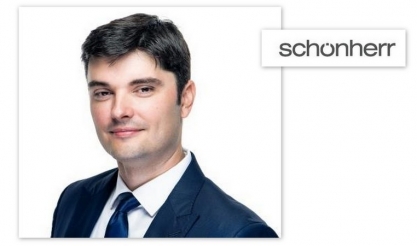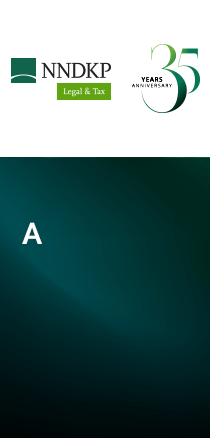
Mysterious are the ways of VAT
03 Iunie 2020 Theodor Artenie, Tax Director at Schoenherr Tax Bucharest SRL
Even though 2025 seems far away, at EU level, changes to the VAT directive are constantly brought and businesses should make sure they are prepared and adapt to said changes in time.

|
Towards the end of March 2020, Council Directive (EU) 2020/285 amending, among others, Directive 2006/112/EC on the common system of value added tax ("the VAT Directive") entered into force, announcing a number of updates to the special VAT exemption scheme applicable to small enterprises.
These provisions are but an intermediate step to the definitive VAT system, which will be implemented throughout the single EU VAT area. The available timeline indicates that they should be transposed by Member States by 31 December 2024 and enter into force as of 1 January 2025. It is therefore quite early to tell if these amendments bring good tidings or not.
2020 VAT exemption scheme
The VAT directive allows for the implementation of a special scheme for small enterprises in the form of a VAT exemption granted only to enterprises established in the Member State in which the VAT is due (i.e. for domestic supplies).
Small enterprises can benefit from the exemption if their annual turnover is below a certain threshold applied by the Member State in which the VAT is due. The thresholds are laid down by the VAT Directive and were mostly put in place a very long time ago and are therefore obsolete. For this reason, by way of derogation, Member States have been temporarily allowed to apply thresholds higher than the ones provided by the VAT Directive.
Taxable persons who are not established in the Member State where the transaction is VAT taxable, cannot benefit from the exemption for small enterprises in said state.
For example, a Romanian taxable person can benefit from the exemption if its annual turnover is under EUR 88,500 (or lei 300,000 in local currency). This threshold is valid as of April 2018, when it was increased from EUR 65,000 which was also a derogation from the EUR 35,000 turnover threshold provided by the VAT Directive.
A taxable person not established in Romania cannot apply the EUR 88,500 turnover threshold for exempting its transactions subject to VAT in Romania, even if it qualifies as a small enterprise in its Member State of establishment. Therefore, if the transaction that is taxable in Romania is not subject to a reverse-charge rule and the person liable for the payment of VAT to the Romanian tax authorities is the non-resident supplier, said person will have to bear the burden of registering for VAT purposes in Romania and submitting the necessary VAT returns, regardless of the level of its turnover in Romania or in the Member State of establishment.
Likewise, a Romanian taxable person will face the same rules in what concerns its transactions which are taxable in other Member States.
2025 VAT exemption scheme?
As of 2025, the exemption for small enterprises will be designed such that businesses can also enjoy this scheme in other Member States than the one of establishment. Each Member State will have set a maximum EUR 85,000 (approx. lei 395,000 in local currency) turnover threshold for supplies of goods or services made in said state during one year, while an EU-wide annual turnover of EUR 100,000 will also be introduced. The national turnover threshold set by Member States can vary for different sectors of the economy based on objective criteria. However, no threshold can be set above EUR 85,000 and a taxable person eligible to benefit from more than one sectorial threshold can only use one of those thresholds.
Thus, a taxable person not established in a Member State will benefit from the exemption scheme in said Member State if both turnover thresholds are met (i.e. the threshold of that Member State and the EU-wide threshold, as per the above). Member States will be able to decide on the amount of leeway in what concerns exceeding the national threshold and set their own rules regarding the moment when the exemption ceases to apply on their territory based on the moment the threshold in exceeded.
Exceeding the EU threshold during an year, regardless of the national turnover obtained in Members States other than the one of establishment will imply that the exemption is no longer applicable starting with the date the EUR 100,000 threshold will be exceeded. Moreover, said taxable person will not be allowed to opt for the exemption in the year following the one the EU threshold was exceeded, in none of the Member States other than the one of establishment. The EU-wide threshold however does not impact taxable persons established in a Member State for benefiting from the exemption in said Member State.
The application of the new scheme will imply certain notifications and reporting formalities for qualifying taxable persons. However, these will have to be addressed only to the Member State of establishment, allowing a simplification compared to the current state of affairs where a taxable person has to comply with various obligations in each Member State where it conducts business and is liable to VAT. Exchange of information in this case also will become the responsibility of the relevant authorities in each Member State. Directive 285/2020 also amends Regulation 2010/904 on administrative cooperation and combating fraud in the field of value added tax to allow for the exchange of information regarding the application of the new scheme.
How does this affect qualifying businesses?
They will benefit from the newly designed scheme as it implies a reduction of their administrative burden and it will eventually facilitate cross‐border trade within the EU.
On the other hand, they will need to keep an eye on the turnover thresholds in their Member State and in the Member States where they do business (similarly to what they would do if they were performing distance sales) and comply with new reporting formalities to make sure they are allowed to benefit from the VAT exemption. Additionally, those companies conducting business in several Member States and applying VAT (in some countries) and the special scheme (in others) will also have to be mindful of how they claim input VAT credit for the acquisitions they make for their businesses, which will likely be limited.
To conclude, even though 2025 seems far away, at EU level, changes to the VAT directive are constantly brought and businesses should make sure they are prepared and adapt to said changes in time.
| Publicitate pe BizLawyer? |
  |
| Articol 4131 / 4460 | Următorul articol |
| Publicitate pe BizLawyer? |
 |

CMS asistă SYNLAB cu privire la vânzarea unor părți semnificative din operațiunile sale de diagnostic de laborator din Europa de Est. Echipa care a acordat asistență pe aspectele de drept românesc, coordonată de Rodica Manea (Partener)
LegiTeam: Lawyer - Corporate M&A | Reff & Associates
LegiTeam: Zamfirescu Racoţi Vasile & Partners recrutează avocat definitiv dreptul muncii | Consultanță
Women Lawyers | Doamnele sunt bine reprezentate în structura Popescu & Asociații, unde coordonează cu succes mandate provocatoare și complexe, contribuind la poziționarea firmei în rândul liderilor din piața avocaturii. Loredana Popescu, Partener și unul dintre fondatorii firmei: ”Femeile au, de obicei, capacitatea de a asculta cu adevărat, de a înțelege nu doar litera legii, dar și implicațiile umane ale unei spețe. În negocieri, avem răbdare, tact și o abilitate de a crea strategii pe termen lung. Totodată, în litigii, suntem perseverente și strategice”
Eveniment Schoenherr pentru companii active în domeniul alimentar - reglementări, tendințe și practică: 8 mai 2025, București
O singură casă de avocatură locală independentă concurează la titlul de ”Firma anului în România” în cadrul IFLR Europe Awards 2025, ceremonie ce va avea loc joi | NNDKP, Schoenherr și Clifford Chance Badea, printre firmele aflate pe lista scurtă a premianților din acest an
Filip & Company a asistat grupul Digi la contractarea unui împrumut de peste 54,7 mil. € în România și a unui împrumut de 275 mil. € în Spania | Alexandru Bîrsan (co-managing partener) și Rebecca Marina (counsel), în prim plan
VIDEO | Pastila de insolvență – Procedurile de restructurare (powered by ZRVP)
Rundă de promovări la ZRVP | Echipa de seniori a firmei crește cu șapte avocați. Dr. Cosmin Vasile: ”Ceea ce definește avocatul ZRVP este căutarea obsesivă a soluției juridice care să răspundă cel mai bine nevoilor clientului, iar aceasta este calitatea cheie a fiecărui membru al echipei ZRVP și primul criteriu care stă la baza promovărilor anuale”
CMS anunță noi promovări în România | Alina Tihan preia rolul de Partener în departamentul de Finanțe, iar Andrei Tercu devine co-coordonator al departamentului de Taxe. Horea Popescu, Managing Partner: ”Abilitățile lor de lideri și capacitatea de a obține rezultate excepționale le-a adus încrederea și aprecierea tuturor”
Chambers Europe 2025 | Cele mai bune firme locale de avocați în 9 arii de practică. NNDKP, Filip & Company, Schoenherr, RTPR și Țuca Zbarcea & Asociații au cele mai multe nominalizări pe prima bandă a performanței profesionale
Bondoc și Asociații a anulat un Proces-verbal de sancționare emis în materia RO e-Transport. Ce avocați au fost în echipa de proiect
-
BizBanker
-
BizLeader
- in curand...
-
SeeNews
in curand...











 RSS
RSS














































